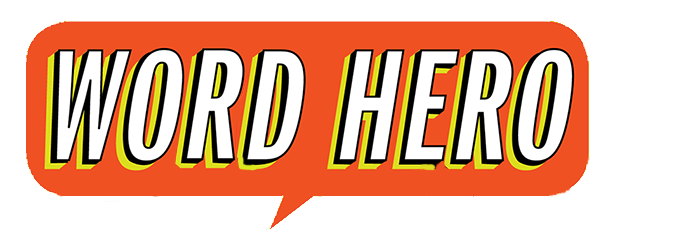Tropes
You often hear the word "trope" whenever someone wants to sound intellectual. But what, exactly, is a trope? Word Hero goes into much greater detail about tropes and how you can use them to craft memorable lines. Meanwhile, here's a brief explanation with some of my favorites.
A trope creates a mental alternative reality. You’re already familiar with metaphor, the best-known trope. If you call the Earth a marble, your audience receives the mental picture of a marble against the dark background of space. Besides triggering the picture memory keeper, though, the metaphorical marble creates an association in people’s brains: Earth equals marble.
Any kind of non-literal language or symbol constitutes a trope. If a statement isn’t literally true, and still isn’t a lie, it’s probably a trope. Why should you care? Because while tropes constitute fancy rhetoric, they often don’t look fancy. Few people recognize politicians’ use of “Main Street” as a trope—a tricky way of making us think we all live in small-town America. That’s not literally true, and it’s not actually a lie; but it’s pretty darn misleading. Typical of your slick, sound-bitten, hair-done politico. (Yes, that’s a trope, too.)
Here are the main categories of tropes. Click on the highlighted terms for more detail.
Belonging trope: This is what I call metonymy and synecdoche.
Metaphor: The trope that presents that a is b. Its close cousin is analogy.
Role-playing tropes: These devices let you play pretend. They include irony, euphemism, hyperbole, the kindergarten imperative, personification, and yogism.
Read the tropical story of the private 'R'!
